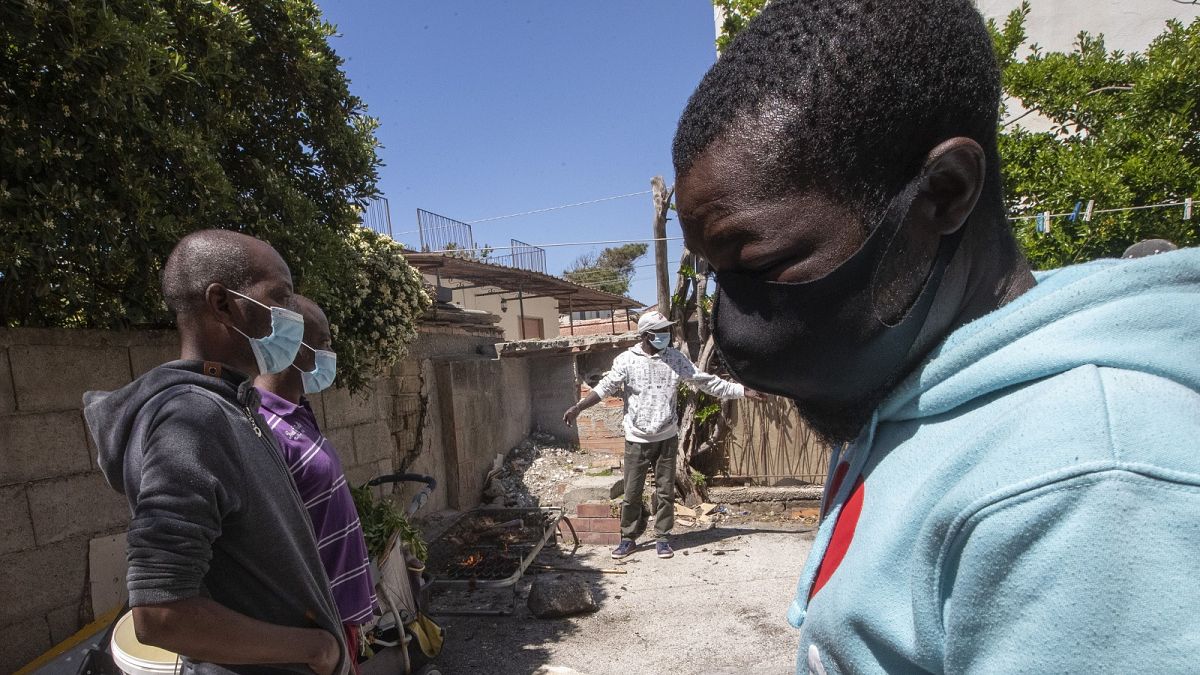The COVID-19 pandemic presents a unique challenge but also a major opportunity to highlight how refugee-led organisations are best placed to act both in emergencies and on long-term integration strategies.
The northern Italian city of Turin has always been a key transit point for refugees and migrants. In the spring of this year, we also found ourselves on the frontline battling COVID-19 in our community. Mosaico, the organisation I lead, provided critical support and information to refugees in hard to reach places that helped address healthcare issues and led to increased compliance with the restrictions on movement in town.
At the time, when local authorities were overwhelmed, our teams were able to step in and communicate vital public health information to refugees in their own languages. The results speak for themselves. We have not seen any cases of COVID-19 in the communities where we work.
We are a refugee-led and staffed organisation. We understand the lives of refugees. We understand why they are forced to move, and we have a sense of the lives they have left behind, because their stories and our stories are similar. Refugees trust us. We have been in Turin since 2007 and have built a strong working relationship with the local government who also trust us to carry out our work.
Due to ever-tightening restrictions and hostility towards migrants and refugees, the need for refugee-led organisations has never been more important. Due to our unique expertise, the municipality brought us in to cooperate on COVID-19 crisis management efforts and civil protection. But beyond the pandemic, there needs to be a renewed focus on the long-term integration of refugees in their host countries. Many were forced by conflict or poverty to interrupt their work and education, but are eager to continue and be active citizens and productive members of society. Unfortunately, states like Italy lack the capacity to inform newcomers of how to navigate the bureaucracy required to apply for accommodation, jobs and university places. This is where refugee-led organisations play a leading role.
Even well-intentioned international NGOs can sometimes aggravate the situation they are trying to help. By neglecting the feelings of the host communities, they help fuel the perception that powerful institutions only benefit outsiders. By maintaining a rigid hierarchy and a culture of dependency, they can also risk patronising and alienating refugees who wish only for autonomy.
Mosaico has forged partnerships with local business who can both sell directly to refugees as well as provide them with training and jobs, thus helping both refugees and stimulating local businesses. Integration is a two-way street and refugee-led organisations who live in the communities where they work understand the importance of breaking the us versus them approach that some large organisations have helped perpetuate.
The direct funding of organisations like ours can be highly impactful. On the ground initiatives do not need legions of staff and expensive offices around the world. We cultivate core teams of people who have walked in the shoes of those they have helped and understand the local dynamics of the areas in which they operate. Less reliance on government funding means that we can also be powerful advocates for refugees on a political level without having to dilute or compromise our message.
Italy is not the end destination for many refugees in Turin but we do not judge them or tell them not to cross a border. As the European Commission president, Ursula von der Leyen said in September, “migration is a fact for Europe. It always will be.” However, the increasing criminalisation of asylum across Europe merely forces people further underground. In normal times, this makes it harder to provide help to them. In a pandemic situation, it poses a risk to public health.
Though we are chronically underfunded, we see the impact of our work on the ground every day. We capitalise on the trust we are able to establish in the community because we decided to build a life here, and we are here for those who want to do the same. Refugee-led organisations play a vital role in advancing the interests of refugees, and the communities where they live, across the world. And over time, the communities see us not just as refugees, or as people who pass through, but as neighbours.
The economic impact of the COVID-19 pandemic is likely to cause more turmoil and force even more people to seek opportunities elsewhere in the years to come. The challenges will continue to proliferate but by elevating and supporting the work of refugee-led organisations, we can be the best advocates of our work and refugees on the world stage.
- Yagoub Kibeida is Executive Director of Mosaico: Actions for Refugees
____________
Are you a recognised expert in your field? At Euronews, we believe all views matter. Contact us at view@euronews.com to send pitches or submissions and be part of the conversation.
